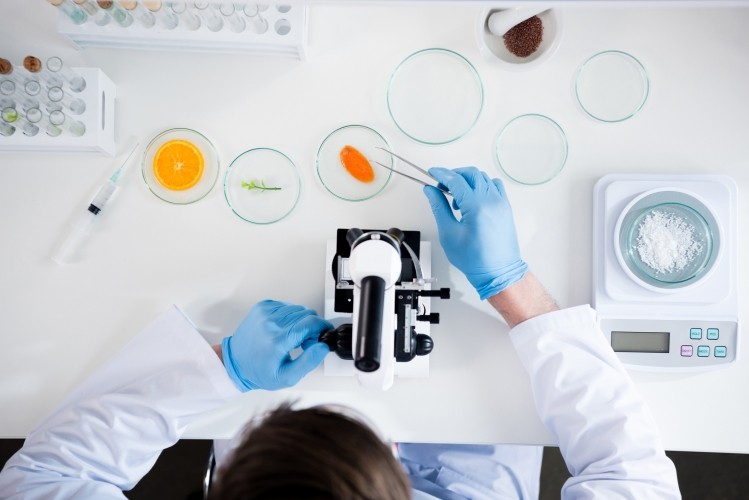The key to healthy and sustainable diets… more processed foods?

While some people steer away from foods containing ingredients that are perceived as ‘unnatural’, processed foods don’t have to be unhealthy. That’s according to the British Nutrition Foundation (BNF)’s new special edition exploring innovations in the food industry to improve the nutrient profile of food products and thus potentially improve public health.
The special edition, which contains a series of newly-published papers, argues that acceptance of new ingredients will be a key to ensuring a healthier and more sustainable future for the food supply as demand for food grows alongside rises in global population.
“Just because many of the processed foods currently available are unhealthy when overconsumed, this does not mean that processed foods per se are unhealthy or undesirable. It is possible to create healthier processed foods by the careful application of science and technology,” said Professor Julian McClements, University of Massachusetts, author of one of the papers.
For decades, nutritionists and public health campaigners have urged the general public to eat more fruits and vegetables, nuts and wholegrains. But this has not done enough to improve the overall health status of the general population, he said, or ‘overcome the imbalance between energy consumed and energy expended’.
“Many people do not have the time or resources to prepare foods from fresh ingredients every meal. Instead, many rely on the convenience of processed foods that are relatively quick and easy to prepare. We should, therefore, be encouraging the food industry to create healthier processed foods, rather than demonising all processed foods.”
COVID and resulting lockdowns have accelerated calls for a return to old-fashioned values such as family mealtimes and cooking from scratch using fresh ingredients to improve individual health. Processing, however “often improves the safety, palatability, bioavailability, and shelf life of foods, thereby increasing the healthiness and sustainability of the food supply”, continued McClements.
“Nevertheless, food technology approaches should be combined with other strategies to achieve these goals, including changes in government policies that promote healthy eating, such as targeted taxes, fiscal incentives, research funding, subsidies, education, and regulations on marketing and promotion, as well as changes in agricultural practices, such as regenerative agriculture, which includes farming and grazing practices that aim to mitigate the effects of climate change.”
An ‘irrational’ aversion to non-natural ingredients among consumers
Jon Poole, the chief executive of the Institute of Food Science and Technology, noted in the abstract to the special edition, that consumers are increasingly seeking what are referred to as ‘clean labelled’ products – that is, products containing fewer ingredients or fewer or no ingredients that are seen as ‘non‐natural’.
But this ‘often irrational’ aversion to what are seen as ‘non‐natural’ ingredients can, frustratingly, lead to consumers sometimes making less‐healthy food choices, he said. “This desire to avoid non‐natural ingredients is also now further compounded by the increasing desire to seek out sustainable or environmentally friendly options.”
Creative innovations
The special issue features studies from across food industry sectors that respond to health and sustainability trends and challenges with creative solutions. These include innovative ingredients to facilitate sugar or saturated fat reductions and help increase the amount of fibre or healthy fats in foods.
One example is Nestle's development of cocoa pulp as a sugar replacer for chocolate. Cocoa pulp is usually a waste product of the cocoa bean, but the case study showcases how it can be pasteurised, frozen and dried to create a workable ingredient for chocolate manufacturing.
Chocolate made with cocoa pulp has around 35% less total sugar when compared to a typical 70% dark chocolate and is higher in fibre.
There are often unintended consequences involved in reformulation, however. For example, a sugar reduction claim cannot be made with chocolate made with cocoa pulp as a higher percentage of cocoa liquor and cocoa butter means it is slightly higher in calories.
Another case study focuses on the sweet-tasting protein as a sugar replacer developed by Amai Proteins. This protein is 10,000 times sweeter than natural sugar. What’s more, with very small amounts needed to impart the same sweetness, it’s also around 90% cheaper than sugar and with a smaller environmental footprint. The protein still needs to undergo regulatory approval but has been approved for research and development use with collaborations from leading food and beverage multinationals, and its use in foods is expected within two years.
Intelligent reformulation
Poole said these case studies illustrate an increasingly intelligent form of reformulation in the food industry.
“Over the last few years, the emphasis in terms of food research and development has been gradually changing from new product formulation to reformulation and now, as we are seeing in these case studies, to a more intelligent form of reformulation which attempts to balance desired dietary changes with consumer acceptability and other factors such as environmental considerations and supply constraints,” he said.
“Rarely these days is it a mere binary choice between using or reducing an ingredient such as sugar or salt; whether or not to increase the levels of fibre in a product; or whether to replace saturated or trans fats with other ‘healthier’ fats.”
Interestingly, he added, in a bid to develop alternative and healthier ingredients many of the case studies featured in the BNF special edition are inspired by or have derived their solutions from nature.
“This can result in the double benefit of developing potentially healthier or more nutritious solutions, whilst at the same time helping to satisfy consumer demands for cleaner labelling or products with greener credentials.”
Source
Nutrition Bulletin Special Issue: Food reformulation and innovation: future solutions for healthier and more sustainable diet: https://onlinelibrary.wiley.com/journal/14673010

























